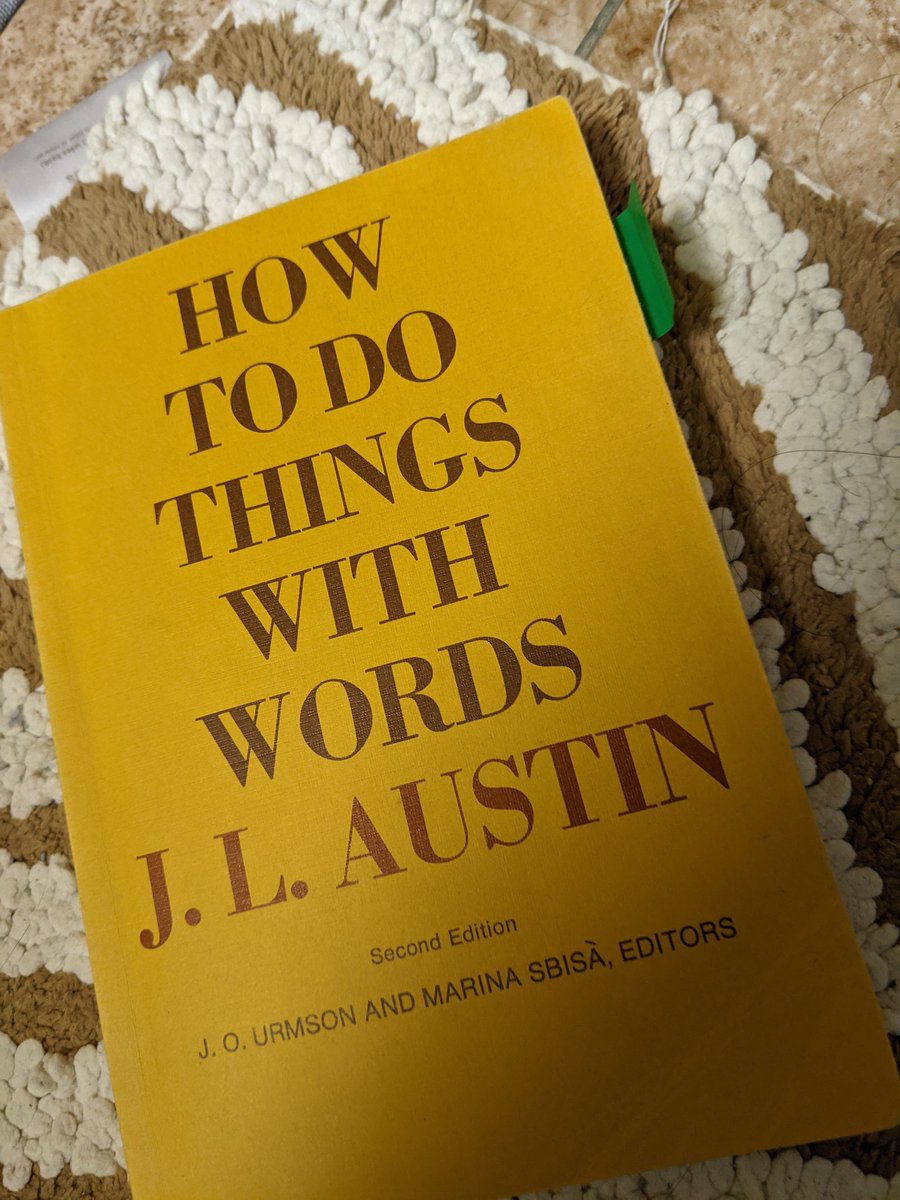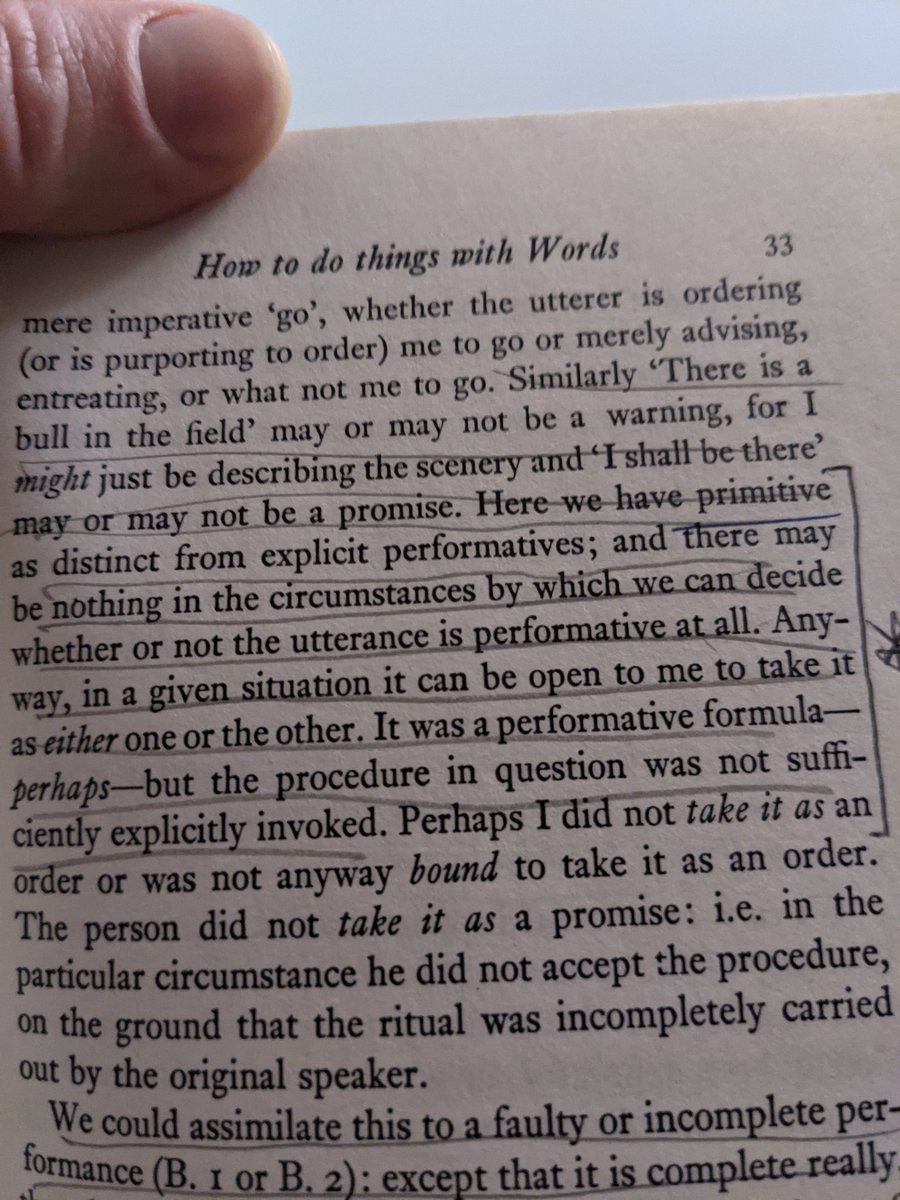Dusting off my speech act theory books to anticipate Trump's defense team approach to muddying the waters on "incitement." Since nobody can doubt the "to insurrection" part, that's their only hope. 1/
But you don't have to reread Austin to worry that Senate Republicans are going to do what they do every night: make something that shouldn't be partisan partisan by accusing the Democrats of being partisan and then acting in concert. I mean, even Pinky should get that by now. 2/
Republicans are masters of "I know you are but what am I?" So childish. So effective if they stick together. They can make anything partisan by making anything partisan. So the Democrats have to find wedge issues. Keep them from sticking together. Make them alienate voters. 3/
Trump defense is laden with potential wedge issues. It's no surprise Trump's lawyers plan to keep their defense short. The more they say, the more they risk--the more allies they implicate, throw under the bus, or alienate. There are many paths filled only with pitfalls. 4/
So "incitement" is a kind of performative utterance (as opposed to a constative one, it's not a description or statement, but instead an action, or attempted action). J.L. Austin pointed out that performatives hide in plain sight. They are "masqueraders." 5/
So tactic one may be to deny any performativity to Trump's many speech acts. They were just his opinions; he sincerely believed he had won the election; he was just describing reality as he understood it. Oh, so he was completely divorced from reality, even delusional, then? 6/
Well, no, Pence and the Cabinet never made that determination or sought expert advice on Trump's mental state. They decided not to challenge his fitness for office after January 6, and he finished his term as President. So he had to know he had lost and Biden had won, right? 7/
So why was he making false statements, then? What was he getting out of making them if not assembling and deploying a private militia for the purposes of overturning the election? Well, obviously money. And here's where tactic two emerges. 8/
Trump's performative utterances weren't "incitement," they were grifting. He knew a sucker's born every minute, a fool and his money are soon parted, let the buyer beware. He was just selling false hope, providing fan service, telling his followers what they wanted to hear. 9/
By grifting his followers, then, he was letting them down gently, giving them one last chance to vent their frustration, get it out of their systems, feel a little cathartic rage before moving on to their next stage of grief. He was taking their money for their own good! 10/
Of course, this defense of Trump could alienate his stans. So it's not really open to his defense team. Instead they might go to the "showman" defense. He's an insult comic, a performance artist, a joker. His fairy tales and conspiracy theories are really just entertainment. 11/
Trump never intended for his words to be taken literally/seriously. If his audience did so, that's on them. How could they not see he was merely performing as a wannabe authoritarian, that is was all an act? Give the poor man some artistic license already, would you? 12/
Of course, this line of defense depends on him not actually being the President or Commander in Chief. The circumstances Austin discusses were appropriate; he was following a dictator's playbook; any deniability he may have tried to cultivate is completely implausible. 13/
So tactic two is a dead end. All other performatives either are consistent with incitement or subsidiary to that overarching goal or expose his manipulations of his stans in ways detrimental to his longer-term interests or just unbelievable on their face. 14/
So they're left with tactic three, which is to try to poke holes in the very notion of illocutionary force and perlocutionary effects. And Austin may give them some help here. Or at least appear to. He certainly is eager to explore the ways that performatives can go wrong. 15/
Austin wants to distinguish "normal," "serious," non-poetic, non-playful, non-joking, non-acting REAL performatives from their "hollow," "void," and otherwise "unhappy" cousins. Here are some famous passages where he attempts to do this. 16/
Part of the problem for Austin is his investment in the authority of traditions, ceremonies, and conventions, even as he acknowledges room for interpretation over what's proper, appropriate, conventional. 17/
So Trump's defense team will try to argue that Trump's obviously unconventional, improper, and abnormal speech never rises to the level of illocutionary force. And that any perlocutionary effects are the sole responsibility of the insurrectionists. 18/
I doubt they'll argue this well or convincingly. But since many of those judging Trump are just looking for fig leaves anyway, they'll lap it up. Expect a lot of "Trump can't be held responsible for his words"/"insurrectionists must be held responsible for their actions." 19/

 Read on Twitter
Read on Twitter













